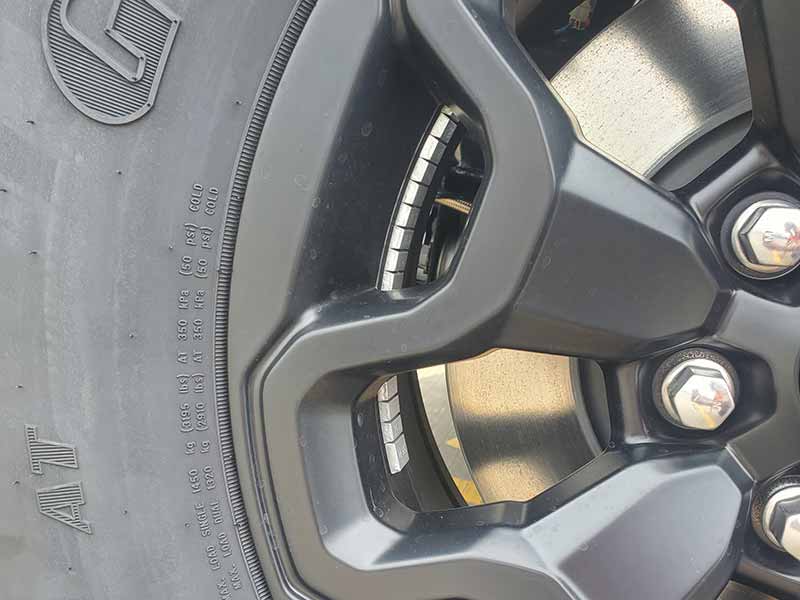Wheel weights are important in keeping your wheels and tires properly balanced.
When a wheel weight falls off, it can throw off the balance of your tire, causing it to vibrate and your steering wheel to shake. This can be not only annoying but also potentially dangerous if left unaddressed.
Wheel Weights Fell Off
Wheel weights are small, metal pieces clipped onto your wheel’s rim or stuck onto the inside of the barrel. They help to balance your tires and prevent vibration while driving.
Without them, your ride would be a lot bumpier, and your tires would wear out unevenly.
In this article, we’ll explain what causes wheel weights to fall off, the symptoms of missing wheel weights, and what you can do to prevent this from happening in the first place.
Let’s take a closer look.
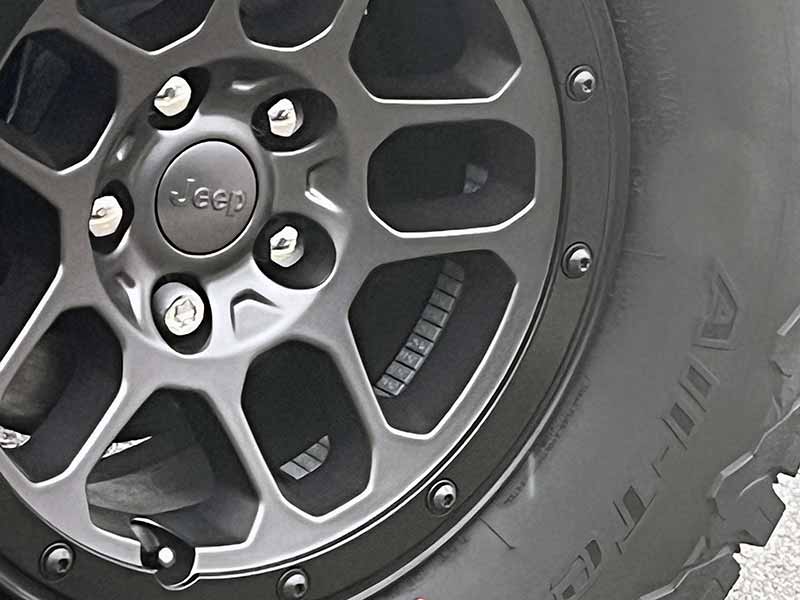
What Causes Wheel Weights To Fall Off?
One of the most common reasons wheel weights fall off is improper installation. If the wheel weights are not correctly attached to your tires, they can come loose and fall off while you’re driving. This can be caused by many factors, such as using the wrong type of adhesive, not cleaning the wheel surface properly before installation, or not tightening the weights enough.
Another common cause of wheel weights falling off is damage to the tire or rim. If you hit a curb or pothole hard enough, it can cause the weights to become dislodged or even cause damage to the tire itself.
Extreme temperatures can also cause wheel weights to fall off. If your car is exposed to extreme heat or cold, it can cause the adhesive that holds the weights in place to weaken or break down over time.
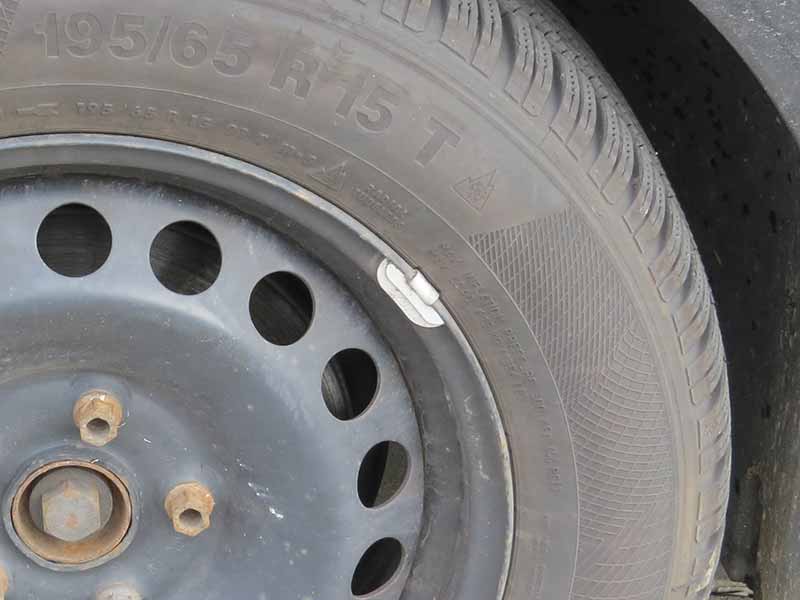
Are Wheel Weights Necessary?
Wheel weights are absolutely necessary. When you install new tires or wheels on your car, they aren’t perfectly balanced. This can cause your car or truck to vibrate or shake while you’re driving, which can be not only uncomfortable but also dangerous. Wheel weights help to balance out your tires and wheels and keep them rolling smoothly, so you can enjoy a safe and comfortable ride while also getting the most tread life out of your tires.
Are any alternatives to using wheel weights? While there are some DIY methods out there that involve using materials like balancing beads, clay, or sand to balance your tires, these methods are not as effective or reliable as using actual wheel weights. Plus, they can be messy and time-consuming to implement.
Missing Wheel Weight Symptoms
When a wheel weight falls off or is missing, it can cause some problems that are hard to ignore.
Here are some of the most common signs that you may be missing a wheel weight:
- Vibration or shaking while driving: If you feel a vibration or shaking sensation in your steering wheel or throughout your car, it may be a sign that your wheels are not correctly balanced. This is a common symptom of missing wheel weights.
- Uneven tire wear: When your tires are not properly balanced, they can wear unevenly. This can cause bald spots or uneven tread wear on your tires, which can lead to decreased traction and handling.
- Noises coming from your tires: If you hear a thumping or rattling noise coming from your tires, it could be a sign that you’re missing a wheel weight. This noise is often caused by an unbalanced tire hitting the road surface.
- Decreased fuel efficiency: When your wheels are not properly balanced, it can cause your car to work harder to maintain speed, which can lead to reduced fuel efficiency.
If you’re experiencing any of these symptoms, it’s important to have your tires checked by a professional as soon as possible.
Driving Without Wheel Weights
Driving without wheel weights can cause several problems for your car and your driving experience. Without the proper balance that wheel weights provide, your tires can vibrate or shake while driving, making for a bumpy and uncomfortable ride. In addition, unbalanced tires can cause uneven wear on your tires, which can lead to bald spots and decreased traction on the road.
Not having the correct number of wheel weights can also cause damage to your car’s suspension and steering components. The constant vibration and shaking can cause undue stress on these systems, leading to premature wear and potentially costly repairs down the line.
Out-of-balance tires also can negatively impact your car’s fuel efficiency. When your tires are unbalanced, your car or truck has to work harder to maintain speed, which can lead to decreased fuel economy over time.
Do All Wheels Need Balancing Weights?
The short answer is yes. Almost all wheels and tires do require balancing weights. When a wheel or tire is manufactured, it’s rare for it to be perfectly balanced. Even slight imbalances can cause vibration and shaking while driving. Balancing weights are used to even out the weight distribution, so it spins smoothly and without any wobble.
Not all wheels require the same amount of balancing weights, though. Some wheels are more perfectly balanced than others and may not require as much weight to balance them out. In addition, some high-performance wheels may come pre-balanced from the factory, so they may not need additional balancing weights.
You should always have your wheels and tires checked and balanced by a professional to avoid experiencing any of the symptoms of unbalanced tires, such as vibration, uneven wear, or noises.
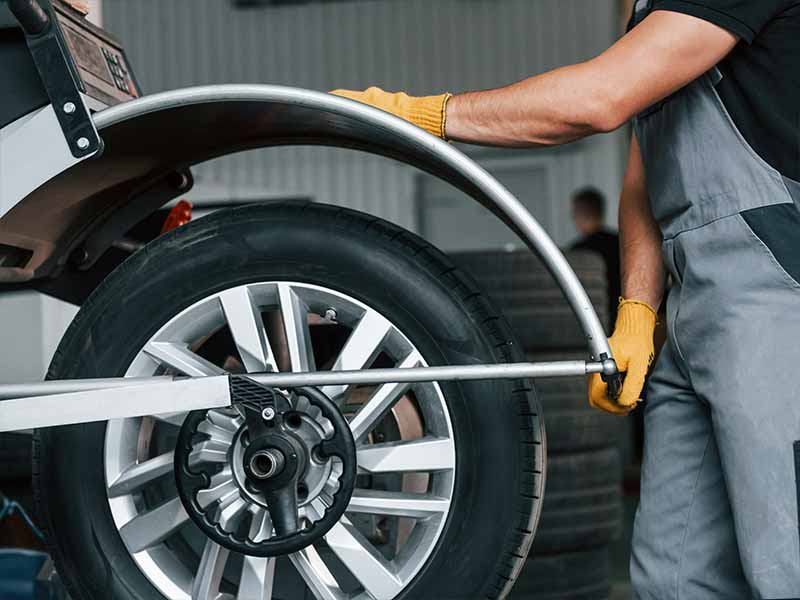
How Many Weights Should Be On A Tire?
The number of weights needed on a tire can vary depending on the wheel and tire combination. Generally, most passenger cars and trucks require between one and four weights per tire, but it’s not uncommon to see more or fewer weights depending on how out of balance the wheel and tire may be.
When installing balancing weights, it’s important to place them in the correct spots around the wheel to make sure that the tire is properly balanced. Balancing weights should be placed in a way that evenly distributes the weight on the wheel so that it spins smoothly and without any wobble.
Stick On Wheel Weights Vs Clip-on
Stick-on wheel weights, as the name suggests, are weights that are attached to the inside of the wheel with adhesive. They are generally considered more aesthetically pleasing than clip-on weights since they are hidden from view once installed. Stick-on weights are also more accurate than clip-on weights since they can be placed more precisely on the wheel.
Clip-on wheel weights, on the other hand, are weights that are attached to the outside of the wheel with a clip. They are generally easier and faster to install than stick-on weights since they don’t require the same level of precision when placing them on the wheel. Clip-on weights are also less likely to fall off or come loose than stick-on weights since they are held in place by the clip.
As for which type of weight is better, it really depends on the situation. Clip-on weights are a good option for those looking for a quick and easy solution and don’t care about appearances or for those with wheels that require a lot of weight to balance. Stick-on weights are a good option for those concerned about the appearance of their wheels or those with wheels that don’t accommodate clip-on weights.
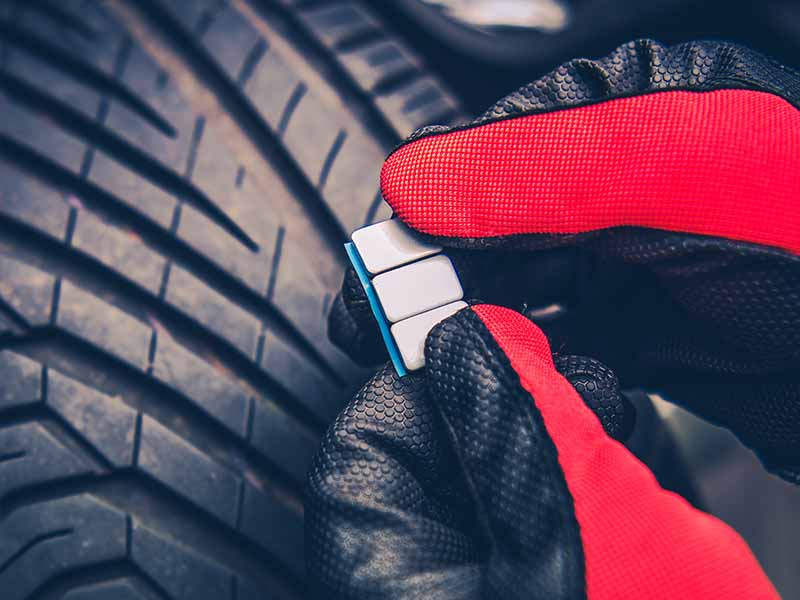
How To Keep Wheel Weights From Falling Off
The first thing you can do to prevent wheel weights from falling off is to make sure that they are installed correctly. This means that they should be placed in the correct locations on the wheel and should be securely fastened in place.
If you aren’t concerned about looks, clip-on weights are less likely to come off than stick-on weights. Adhesive wheel weights will need the area they are stuck to cleaned well to prevent dirt and road grime from preventing the glue from sticking well over time.
You should also consider having your wheels and tires rebalanced every 10,000 miles or so. Not only will this help you not have to deal with loose weights as often, but your wheels and tires become unbalanced over time as the tires wear down, and small bends and dings from curbs and potholes damage your wheels.
You can also take steps to protect your wheel weights from damage. Avoid hitting curbs or driving over potholes, as this can cause the weights to become dislodged. You can use wheel protectors or rim guards to help protect your wheels and weights from damage.
Resources
Below are some links you may find helpful when learning about tires
- How often should tires/wheels be balanced? – Cars.com
- Wheel weights: Balancing form with function – Tire Business
Final Thoughts
Whether you’re experiencing a vibrating steering wheel or just want to make sure your tires are properly balanced, it’s important to understand the role that wheel weights play in maintaining a smooth ride.
Remember, if you notice any symptoms of a lost wheel weight, such as vibration or shaking, it’s important to have your tires checked and balanced by a professional. And if you’re in need of new wheel weights, be sure to choose the right type for your wheels and follow the manufacturer’s instructions for installation.
Good luck and happy motoring.
